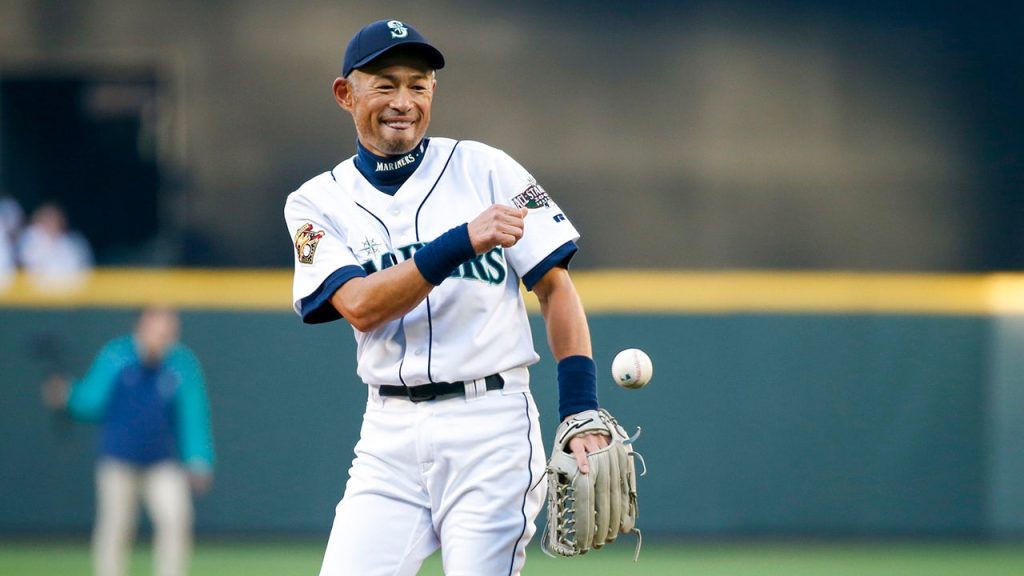Ichiro Suzuki, the iconic Japanese baseball player, achieved near-unanimous election to the Baseball Hall of Fame, receiving 99.7% of the votes cast by baseball writers. While the single dissenting vote prevented him from joining Mariano Rivera as the only unanimous inductee, Ichiro’s enshrinement in Cooperstown solidified his legacy as one of the greatest hitters and baserunners in baseball history. The near-miss sparked outrage among some baseball writers and fans who saw the lone dissenting vote as an inexplicable snub to a player with such an impressive career. The incident highlighted the often-debated nature of Hall of Fame voting and the subjective nature of individual ballots. Despite the controversy, Ichiro’s induction marks a historic moment, as he becomes the first Japanese-born player to receive this prestigious honor.
Ichiro’s journey to the Hall of Fame began in Japan, where he dominated the professional league for nine seasons, capturing three MVP awards and earning seven All-Star selections. His .353 batting average during this period showcased his exceptional hitting ability and generated significant anticipation for his arrival in Major League Baseball. Joining the Seattle Mariners in 2001 at the age of 28, Ichiro immediately lived up to the hype, winning the American League MVP award and propelling the Mariners to a record-breaking 116-win season. This impressive debut season cemented his status as a premier player in the league and marked the beginning of a remarkable MLB career.
Ichiro’s consistent excellence continued throughout his first decade in the Majors. From 2001 to 2010, he was selected as an All-Star every year, showcasing his enduring talent and popularity among fans and peers. His defensive prowess was equally impressive, earning him a Gold Glove Award in each of those ten seasons. Further solidifying his status as an elite hitter, he won three Silver Slugger Awards and two batting titles, maintaining a remarkable .331 batting average and an .806 on-base plus slugging percentage (OPS) throughout this period. These achievements underscored Ichiro’s well-rounded skillset and his consistent contribution to his team’s success.
Ichiro’s career was marked by several significant milestones. In 2004, he etched his name in the record books by setting the all-time single-season hit record with 262, a testament to his extraordinary bat control and consistent ability to put the ball in play. He further distinguished himself as the only player in MLB history to achieve ten consecutive 200-hit seasons, solidifying his reputation as one of the most consistent hitters of all time. Beyond his hitting prowess, Ichiro was also a threat on the basepaths, accumulating over 500 stolen bases and joining an exclusive group of seven players to achieve the rare combination of 3,000 hits and 500 stolen bases.
Ichiro’s remarkable consistency is further illustrated by his career batting average. After just his 11th MLB game, his average never dipped below .300, a testament to his unwavering ability to make contact and get on base. He retired with a .311 career batting average, 3,089 hits, and a Wins Above Replacement (WAR) of 60.0, highlighting his significant contributions to his teams throughout his career. In the live-ball era, he stands among an elite group of 21 players with at least ten seasons hitting .300, and even more impressively, one of only seven to achieve this feat for ten consecutive years. These statistics underscore Ichiro’s sustained excellence and his place among the most consistent hitters in baseball history.
Ichiro spent the majority of his 19-year MLB career with the Seattle Mariners, creating an enduring legacy in the Pacific Northwest. He also had stints with the New York Yankees and Miami Marlins, showcasing his adaptability and continued contributions to the game. His induction into the Hall of Fame alongside pitchers CC Sabathia and Billy Wagner marks a celebration of their respective contributions to the sport. Ichiro’s near-unanimous election cements his place as a baseball legend, recognized not only for his remarkable statistical achievements but also for the impact he made on the game, inspiring generations of players and fans, particularly in his native Japan and within the growing Asian American community in the United States. His journey from Japanese baseball star to MLB icon serves as a testament to his talent, dedication, and enduring impact on the sport.

